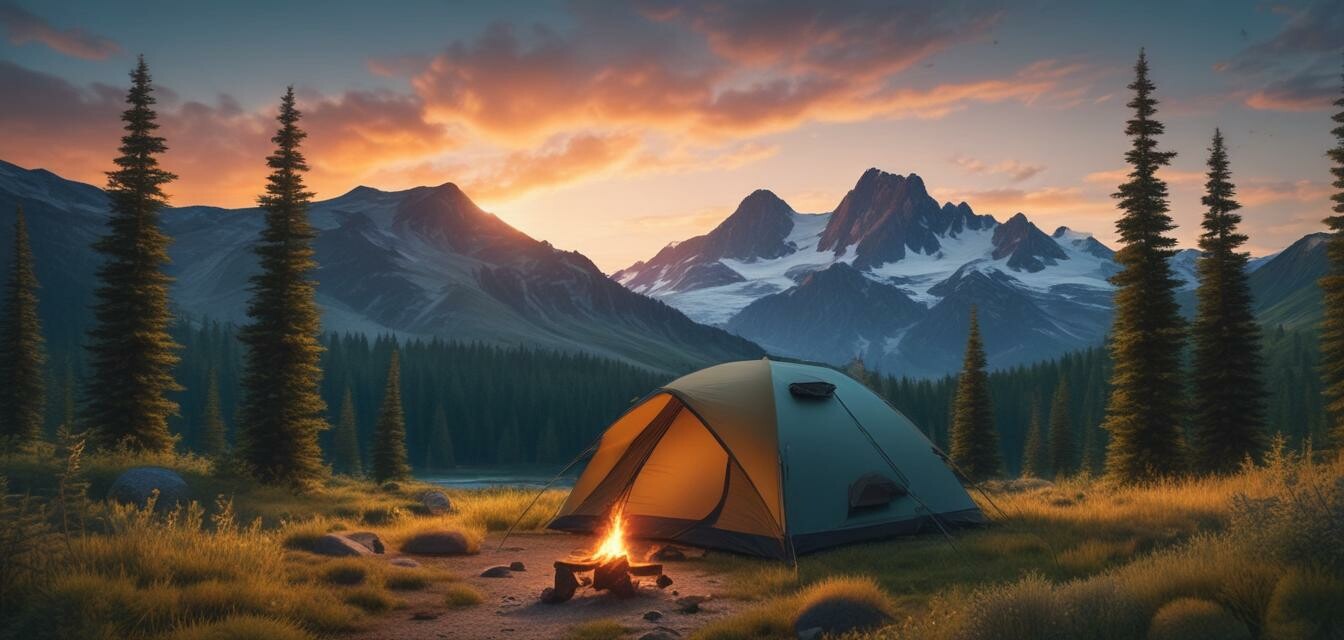
Adjusting to Camping Life: Tips for First Timers
Key Takeaways
- Create a comprehensive packing list before your trip.
- Prioritize comfort with the right gear for sleeping and cooking.
- Understand basic safety protocols to enjoy your adventure.
- Plan simple, nutritious meals to keep energy levels up.
- Stay flexible and prepared for changes in weather and environment.
Camping can be an exhilarating experience, especially for first-timers. However, it can also lead to confusion and discomfort if you're not well-prepared. From understanding basic camping etiquette to mastering essential cooking techniques and sleep arrangements, transitioning to camping life requires a bit of knowledge. In this article, we will provide you with practical tips and advice to help ease you into your new outdoor lifestyle.
Preparing for your camping trip
The key to a successful camping experience begins long before you set foot at the site. Preparation is essential, so here are some tips to consider:
- Research your destination: Familiarize yourself with the area, including regulations, weather conditions, and flora and fauna. Review our Camping Buying Guides for more insights.
- Create a packing list: Make sure you include all essential equipment. A well-thought-out list helps avoid forgetting critical items.
- Test your gear: Set up your tent and cook with your camping equipment at home before you head out. This practice will make things smoother at the campsite.
Your first camping checklist:
| Item | Description |
|---|---|
| Tent | A reliable and easy-to-set-up shelter. |
| Sleeping Bag | Choose one appropriate for the temperature. |
| Cooking Supplies | Portable stove, cooking utensils, and food items. |
| First Aid Kit | Include basic supplies and medication. |
| Lighting | Headlamps or lanterns for night visibility. |
Setting up camp
Once you arrive at your campsite, setting up your space properly is crucial for an enjoyable experience. Here are some steps to follow:
- Choose the right location: Look for level ground away from hazards such as rivers or dead trees that could fall.
- Set up your tent: Follow the manufacturer’s instructions and ensure it's secure. A practice run at home helps.
- Organize your space: Keep items like gear, and food away from your sleeping area, and organize cooking supplies close to your cooking area.
Tips for arranging your campsite:
| Area | Tip |
|---|---|
| Campsite | Avoid high winds and set up away from water. |
| Kitchen Area | Keep this area tidy to avoid attracting wildlife. |
| Rest Area | Have comfortable seating and shade if available. |
Cooking while camping
Cooking in the great outdoors should be simple and enjoyable. Here are some cooking tips for beginners:
- Plan your meals: Simple recipes that require minimal cooking are ideal. Think about staying nourished with energy-rich ingredients.
- Bring easy-to-cook foods: Pre-packaged meals, dried fruits, nuts, and jerky can be good staples.
- Use a portable stove: This is safer and often easier than a campfire.
Sample meal ideas:
| Meal | Ingredients |
|---|---|
| Breakfast | Oatmeal, dried fruits, and nuts. |
| Lunch | Tortillas, canned beans, and cheese. |
| Dinner | Pre-marinated chicken and vegetables cooked on the stove. |
Sleeping arrangements
Getting a good night's sleep while camping is crucial. Here's how to optimize your sleeping arrangements:
- Choose the right sleeping bag: Ensure it's appropriate for the temperatures you expect.
- Use a sleeping pad: This not only provides insulation but also comfort on uneven ground.
- Establish a bedtime routine: Familiar habits can help ease you into sleep even in unfamiliar surroundings.
Considerations for a comfortable sleep:
| Tip | Description |
|---|---|
| Noise Management | Earplugs can help with sounds from nature or fellow campers. |
| Eye Mask | Useful if you are sensitive to light. |
| Proper Clothing | Dress in layers for temperature variations during the night. |
Staying safe while camping
Safety should be your top priority, especially if you're a first-time camper. Follow these essential safety protocols:
- Familiarize yourself with local wildlife: Understanding your surroundings can help mitigate encounters.
- Have a communication plan: Ensure you have reliable means to communicate with others.
- Keep a first aid kit on hand: Be prepared for minor injuries with a well-stocked kit.
Helpful links:
Explore more about camping safety in our detailed Safety & Navigation section.
Pros
- Great way to disconnect from daily life.
- Affordable family activity.
- Access to breathtaking scenery.
- Opportunities for outdoor adventures like hiking and fishing.
Cons
- Weather can be unpredictable.
- Requires considerable preparation.
- May experience discomfort compared to home.
- Potential wildlife encounters can be unnerving.
Conclusion
Adjusting to camping life as a first-timer can be a rewarding experience filled with learning and adventure. With the right preparation, knowledge, and gear, you can make the transition smoother and truly enjoy the great outdoors. Remember to stay flexible and open to the uncertainties of nature. Embrace the adventure, and happy camping!